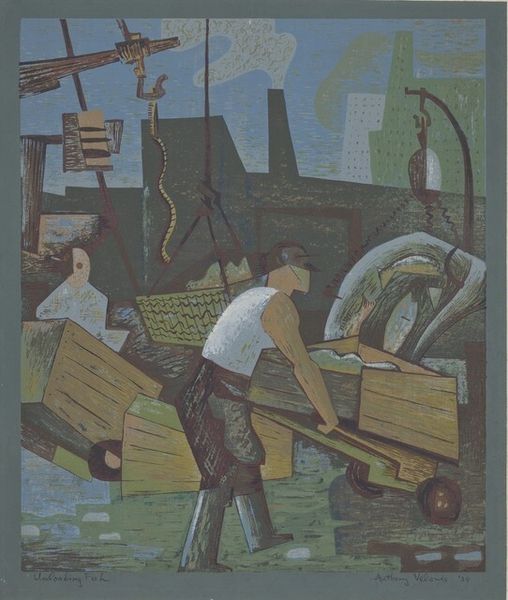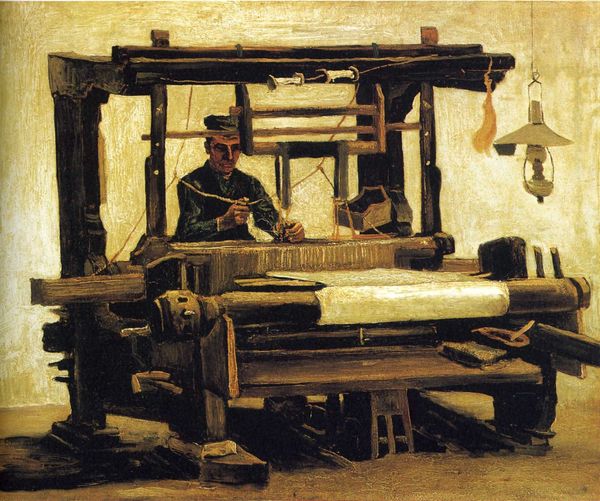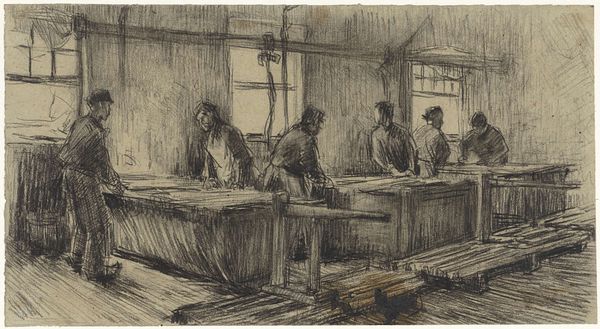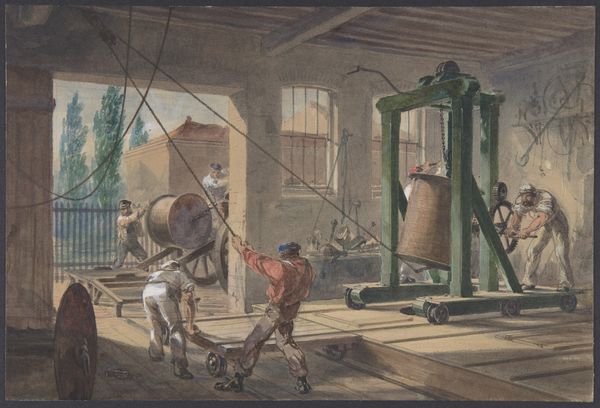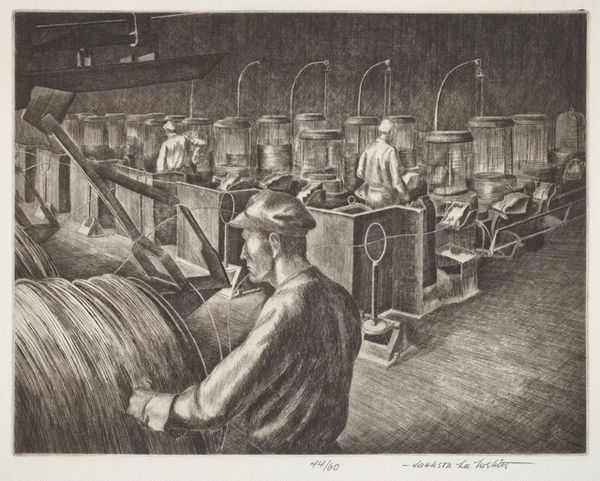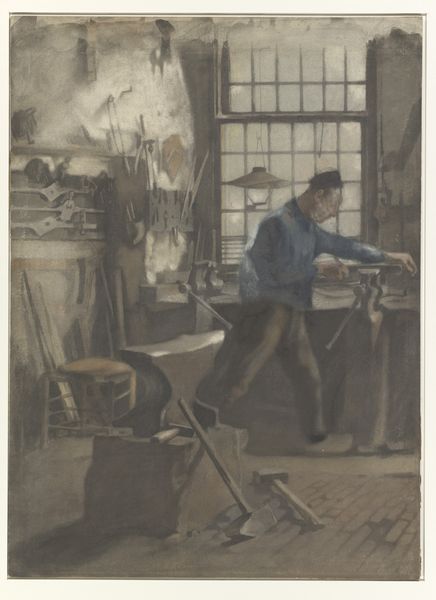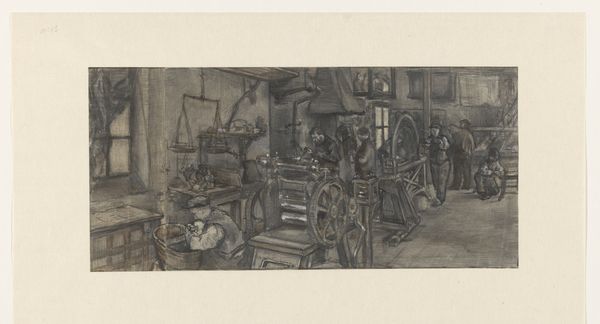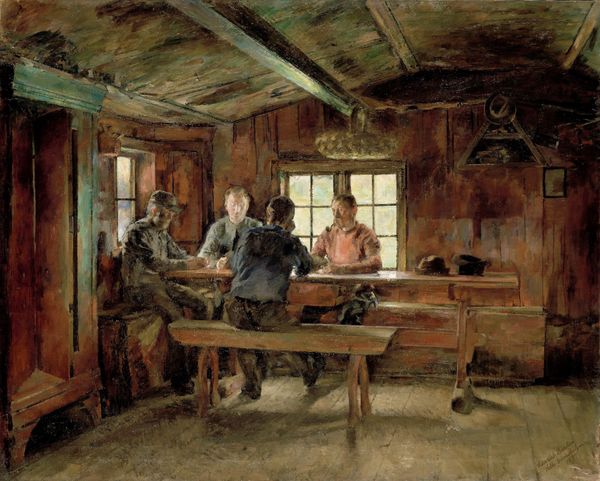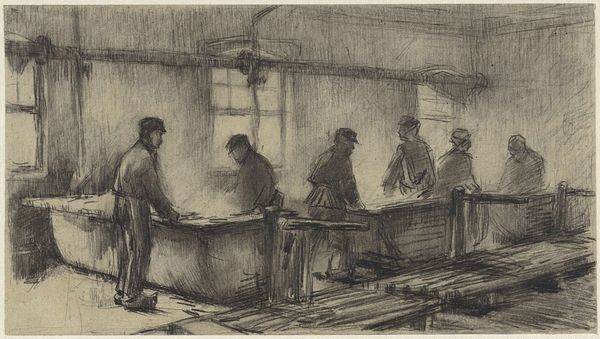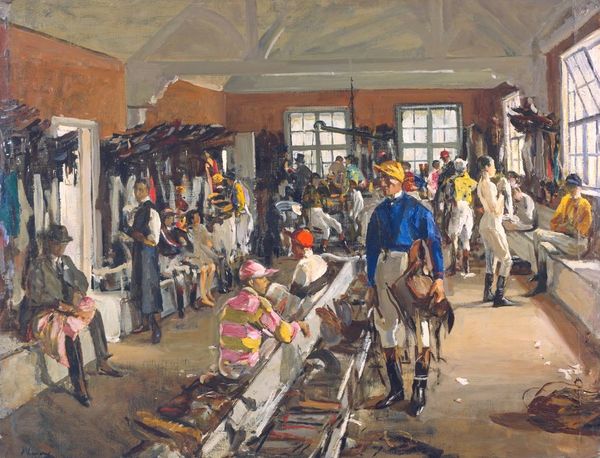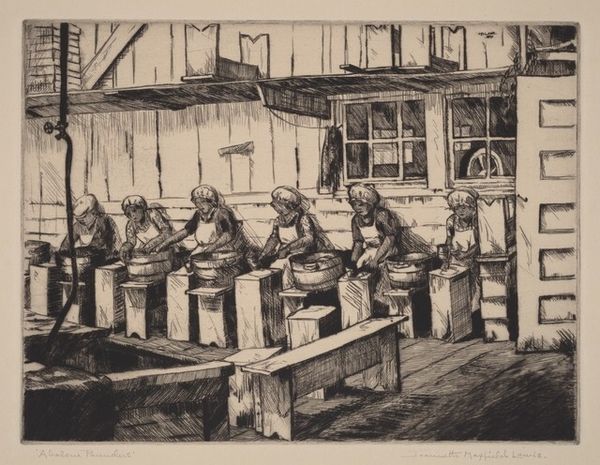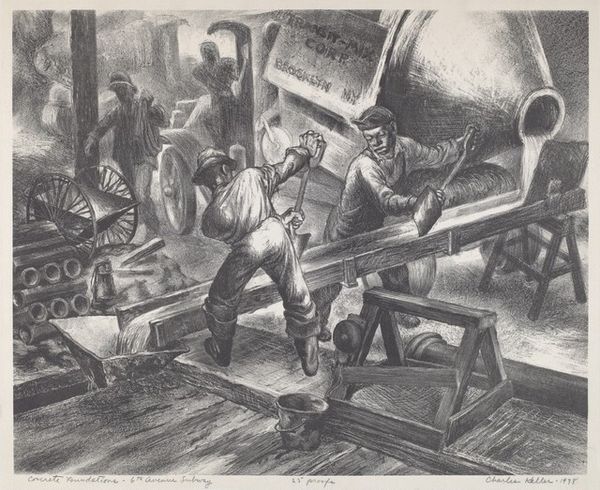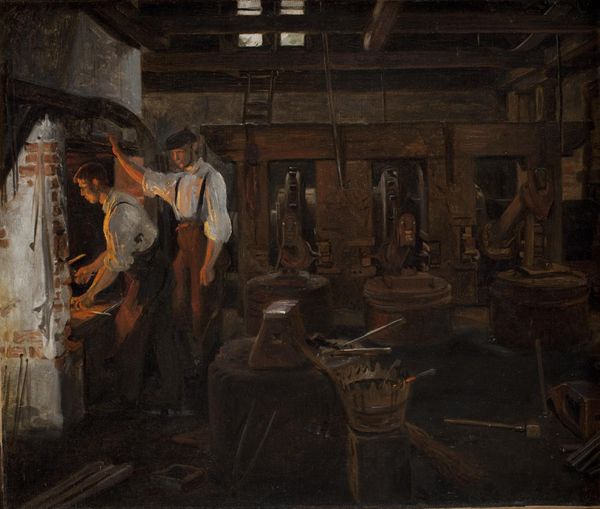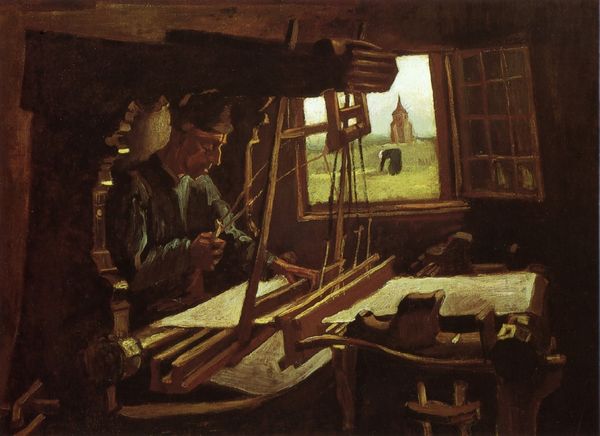
painting, oil-paint
#
portrait
#
painting
#
oil-paint
#
oil painting
#
genre-painting
#
realism
Copyright: Modern Artists: Artvee
Editor: This is Norman Rockwell’s “River Pilot” from 1940, an oil painting depicting various figures on what seems to be a steamboat. I am really intrigued by the different social classes he seems to be representing in such a small space. What do you see in this piece from a historical point of view? Curator: From my perspective, this image serves as a fascinating tableau of American societal hierarchies right before World War II. Consider the deliberate arrangement. We have the young, possibly aspirational, boy looking through the spyglass – embodying forward-looking ambition. He is juxtaposed against figures representing experience, authority, and perhaps even complacency. Editor: Complacency? Interesting. I see a captain guiding a ship, someone hard at work. Curator: Indeed, the captain’s actions might signal leadership and progress. But consider also how he is framed: an older, seemingly wealthy man in a top hat reclining nearby, detached from the immediate task. How does the painting reflect evolving concepts of work and leisure in the American landscape at the time? Rockwell presents these symbols – industry and ease – close together, which suggests perhaps a commentary on power and who benefits from it. Editor: I see your point about the symbolism now, especially with the juxtaposition. And the boy, diligently looking ahead – it is as if he represents a new generation ready to challenge established orders. Do you think the painting critiques or celebrates these social distinctions? Curator: That's the beauty of it, isn't it? It prompts reflection rather than prescribing answers. This speaks to Rockwell’s masterful ability to capture complex, socio-political nuances within seemingly straightforward scenes of everyday American life. Editor: This has given me a totally new way of viewing Rockwell’s work and its subtle commentary on power dynamics within the American narrative. I had never considered the cultural undercurrents to be quite so strong. Curator: Precisely. And remember, art often holds a mirror to society, even in its most seemingly innocuous forms. It's a lens through which we can examine historical values, biases, and evolving aspirations.
Comments
No comments
Be the first to comment and join the conversation on the ultimate creative platform.
